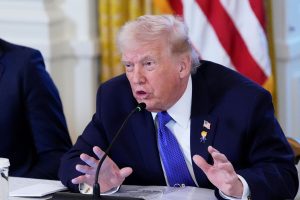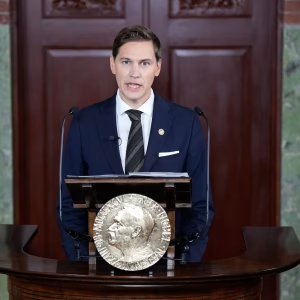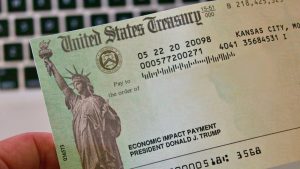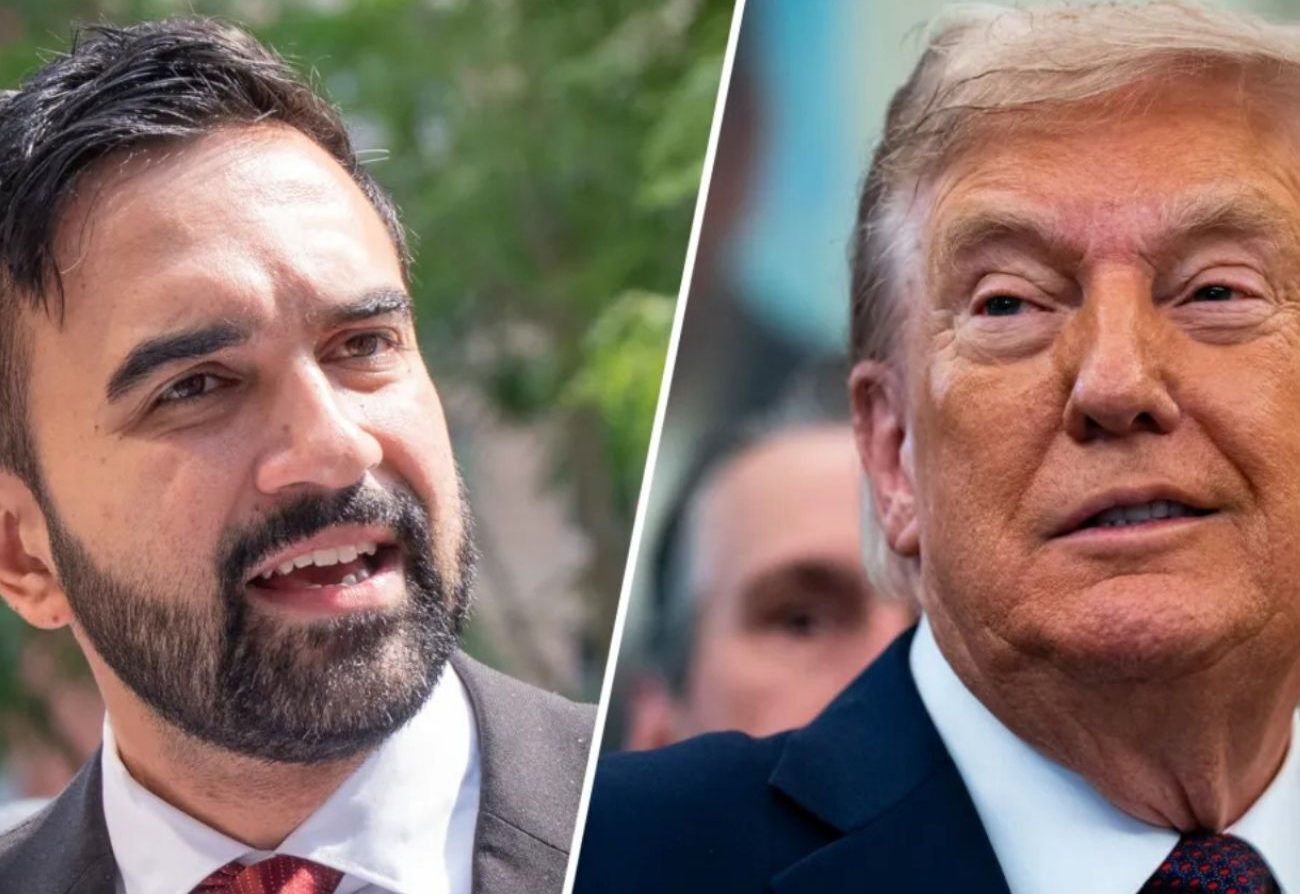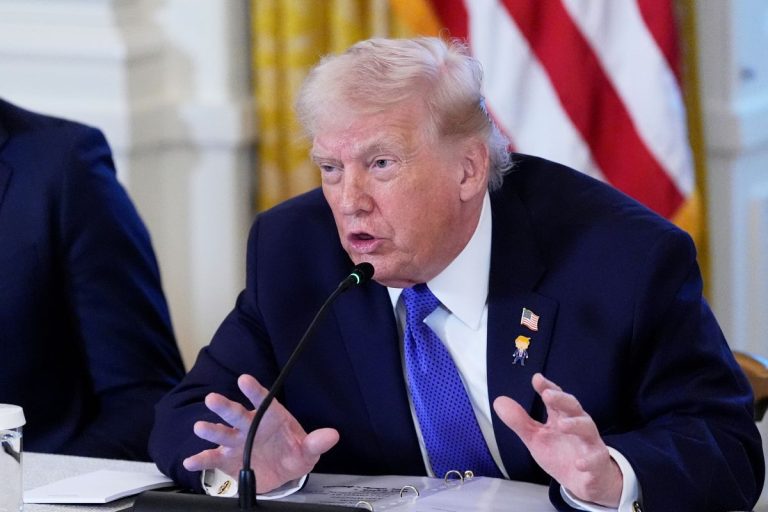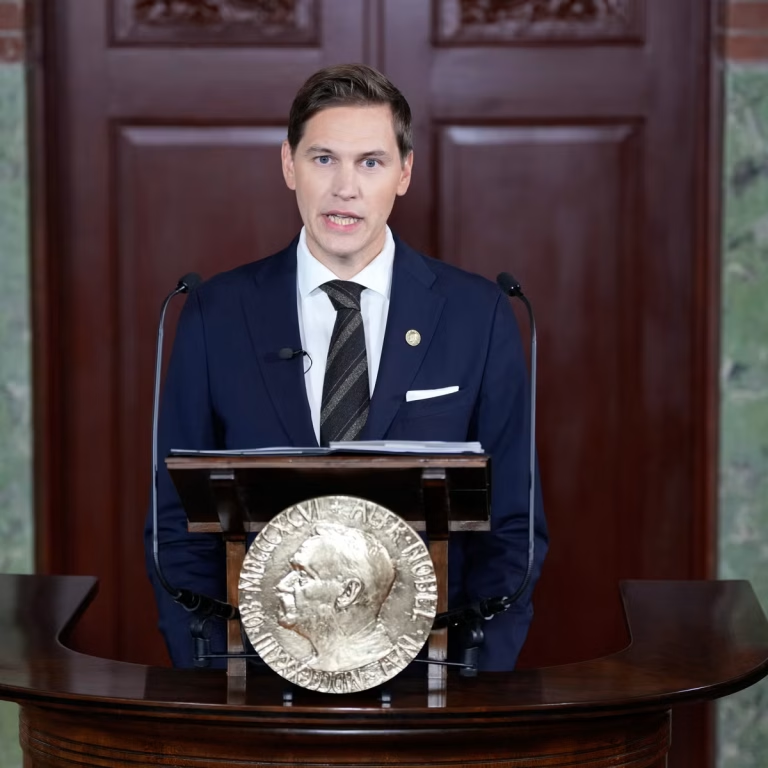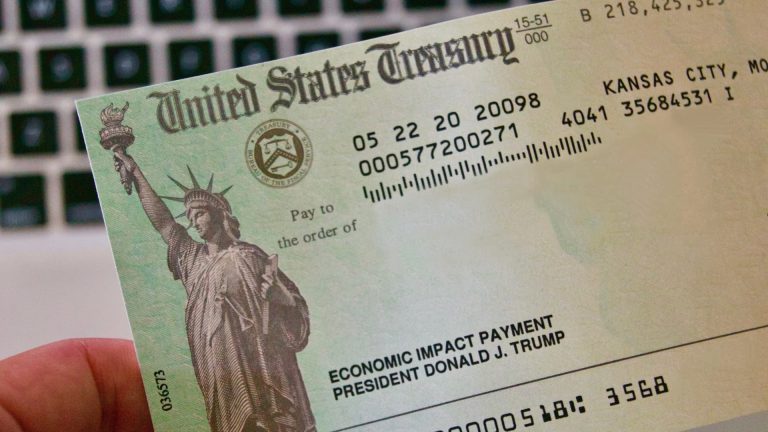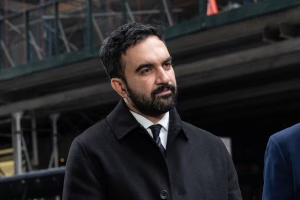Tensions Rise After Election Night Exchange
Hours after winning the race to become New York City’s next mayor, Zohran Mamdani stepped into the national spotlight — not just as a newly elected city leader, but as a potential adversary to the president of the United States.
Mamdani, a self-described democratic socialist and former state assemblyman, used his victory speech to address President Donald Trump directly. “So Donald Trump, since I know you’re watching, I have four words for you: turn the volume up,” he declared to cheers from supporters.
Trump, who had endorsed Mamdani’s independent opponent, former Democratic governor Andrew Cuomo, quickly replied on his Truth Social account: “…AND SO IT BEGINS!”
The public exchange signaled what political observers describe as the start of a high-stakes political confrontation — one that could shape the future of federal-city relations in America’s largest urban center.
Trump’s Warning and the Funding Question
In the days leading up to the election, Trump warned that a Mamdani victory could prompt him to reconsider federal support for New York City. The president has long been at odds with several Democratic-led municipalities and has used federal funding as leverage in policy disputes.
Following Mamdani’s win, Trump doubled down. On Wednesday morning, he cautioned that residents would “flee” the city, predicting economic decline under what he called “a socialist mayor’s agenda.”
That warning carried weight. Since returning to office, Trump has already withheld billions in federal funding following the ongoing government shutdown that began on October 1. Among the suspended funds: $18 billion earmarked for infrastructure projects in New York City, according to multiple reports.
The White House has not released details about which federal programs might face further reductions. But analysts warn that the uncertainty alone could create financial instability for the incoming administration.
The Stakes for New York City’s Budget
Federal contributions made up roughly 7 percent of New York City’s $121 billion budget last year — about $8.5 billion in total, according to the New York City Independent Budget Office. Those funds are critical to maintaining services that millions of residents rely on daily.
They help pay for affordable housing initiatives, disaster response operations, and child services. Federal money also supports education programs for low-income students and meal programs across the city’s public schools.
If the president follows through on threats to reduce federal aid, city officials say it could force difficult trade-offs. Programs central to Mamdani’s campaign — from expanded public transportation to universal childcare — would face steep funding challenges before even reaching the City Council.
“The reality is the mayor-elect will have to focus much of his attention on President Trump and the attacks on New York, rather than all the issues he wants to deal with,” said Julian Zelizer, a political historian at Princeton University. “It’s going to be a problem for the city, and a challenge for the mayor-elect to stay focused.”
An Ambitious Agenda Meets Fiscal Reality
Mamdani campaigned on a progressive platform built around expanding public services and reducing costs for working-class residents. His proposals include free and faster city bus service, rent freezes for stabilized apartments, universal childcare, and even the creation of city-run grocery stores.
Supporters hailed the agenda as a bold blueprint for a fairer New York. Critics, however, have questioned both its feasibility and long-term sustainability.
A recent example cited by policy analysts involves a city-run grocery experiment in Kansas City, Missouri — the Sun Fresh Market. Opened in 2018 with millions in taxpayer funds, the store closed permanently in August 2025 after struggling with low sales, security issues, and supply shortages.
Those challenges underscore what Mamdani may face as he seeks to scale similar programs across a city of nearly nine million people.
Revenue Plans Face State-Level Resistance
To fund his initiatives, Mamdani has proposed raising $10 billion in new annual revenue through higher taxes on large corporations and the wealthiest New Yorkers. The plan, however, requires approval from the state legislature — and, ultimately, the governor’s signature.
Democratic Gov. Kathy Hochul, who is preparing for a tough re-election campaign next year, has so far been noncommittal. Her reluctance to endorse additional taxes on high earners reflects concern about driving businesses and top taxpayers out of the state.
Meanwhile, Trump ally Rep. Elise Stefanik has announced her intention to seek the Republican nomination for governor, signaling a potentially heated contest that could reshape New York’s political alignment heading into 2026.
For Mamdani, that dynamic adds another layer of complexity: even as he prepares to take office, both the state and federal governments appear poised to scrutinize his every move.
Analysts Warn of a Political Balancing Act
Political analysts say Mamdani’s first months in office will likely determine whether he can navigate competing pressures from Washington, Albany, and his own progressive base.
Zelizer noted that “there is going to be a money issue to do anything in the city,” emphasizing that if federal dollars begin to dwindle, it will become “much harder to implement new initiatives.”
Others suggest Mamdani’s best path forward may be to seek pragmatic partnerships — even with political opponents — to safeguard essential funding. “New York’s mayors have often had tense relationships with Washington,” said one urban policy expert. “But this is different. The stakes are higher, and the tone is already confrontational.”
The expert added that Mamdani’s challenge will be not just policy execution, but perception: convincing residents and investors that New York can thrive even amid federal friction.
Trump’s Broader Strategy Toward Cities
Since retaking office, President Trump has renewed a familiar approach: using federal power to influence local policy in Democratic strongholds.
In recent months, he has deployed National Guard troops to several major cities amid protests, tightened immigration enforcement, and publicly clashed with mayors over crime and homelessness. Supporters argue those moves restore “law and order” to urban areas that have struggled in the post-pandemic recovery. Critics, however, view them as politically motivated and punitive.
The confrontation with New York’s incoming mayor could test how far that strategy can go — and how much resistance cities are willing to offer in return.
Mamdani’s Response and the Road Ahead
Despite mounting concerns, Mamdani has shown no sign of backing down. In his victory speech, he appeared confident, almost defiant: “If anyone can show a nation betrayed by Donald Trump how to defeat him, it is the city that gave rise to him.”
His words drew applause from supporters who view New York as a symbol of resilience and progressivism in an era of renewed federal conservatism. Yet even among allies, there is acknowledgment that the road ahead will be difficult.
City officials are already preparing contingency plans in case of extended federal funding cuts. Some have suggested accelerating public-private partnerships or revisiting dormant state grants to maintain essential services. Others warn that higher local taxes could trigger backlash if implemented too quickly.
What remains clear is that New York City — and its soon-to-be mayor — stand at the edge of a major political and fiscal test.
Whether Mamdani can balance his transformative agenda with the economic realities of federal pressure will shape not only his administration, but perhaps the national conversation about the relationship between Washington and America’s cities.

James Jenkins is a celebrated Pulitzer Prize-winning author whose work has reshaped the way readers think about social justice and human rights in America. Raised in Atlanta, Georgia, James grew up in a community that instilled in him both resilience and a strong sense of responsibility toward others. After studying political science and creative writing at Howard University, he worked as a journalist covering civil rights issues before dedicating himself fully to fiction. His novels are known for their sharp, empathetic portraits of marginalized communities and for weaving personal stories with broader political realities. Jenkins’s breakout novel, Shadows of Freedom, won national acclaim for its unflinching look at systemic inequality, while his more recent works explore themes of identity, resilience, and the fight for dignity in the face of oppression. Beyond his novels, James is an active public speaker, lecturing at universities and participating in nonprofit initiatives that support literacy and community empowerment. He believes that storytelling is a way to preserve history and inspire change. When not writing, James enjoys jazz music, mentoring young writers, and traveling with his family to explore cultures and stories around the world.
